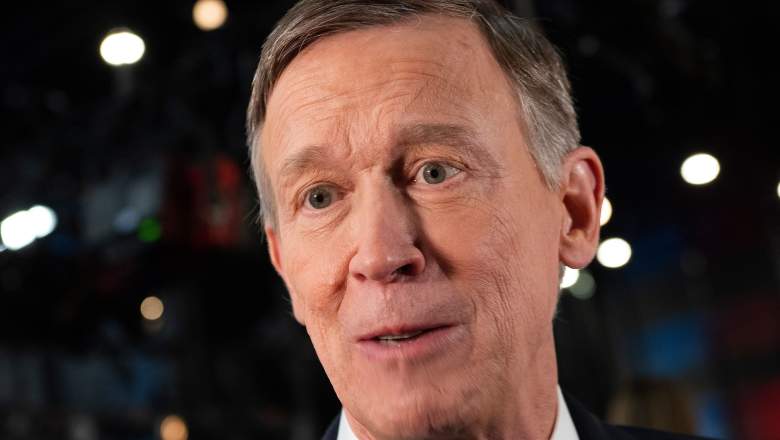
Former Colorado governor, Denver mayor, and presidential candidate John Hickenlooper released an original song advocating for universal vote-by-mail. While Hickenlooper was governor, Colorado passed a sweeping set of legislation to improve the election process in the state, including compulsory vote-by-mail and same-day registration.
The altogether silly and elementary song serves as a rallying call around universal vote-by-mail efforts as well as a DIY-style campaign ad in support of Hickenlooper’s bid to the U.S. Senate.
Here’s what you need to know:
Hickenlooper Is Running To Unseat Republican Sen. Cory Gardner
Hickenlooper served as the mayor of Denver from 2003 until 2011 and then as governor of Colorado from 2011 to 2018. Hickenlooper briefly entered the 2020 presidential race, but ultimately withdrew. He began running for the Senate almost immediately after his withdrawal. The newly released video encourages viewers to vote for Hickenlooper in his race for one of Colorado’s Senate seats. He is running against the one-term incumbent, Sen. Cory Garder, who has become increasingly unpopular for his support of Trump’s border wall and his vote against calling witnesses during the Senate impeachment trial.
Recent polling conducted by a former Hickenlooper campaign staffer suggests the former governor is leading Gardener 54% to 36% among likely voters surveyed, with 9% undecided, according to the Denver Post. That lead is even higher among unaffiliated voters. In December 2019, 40% of Colorado voters were unaffiliated, a new high for the state, according to the Colorado Sun.
Hickenlooper’s Senate Bid Has Squeezed Out Progressive Candidates
Hickenlooper has molded himself as a centrist, and as governor, he often landed on the conservative side of contentious issues like the death penalty, anti-discrimination measures, and fracking, according to The Intercept. Before Hickenlooper entered the Senate race, the Democratic field was crowded, but nevertheless touted a number of viable candidates, including Colorado House Speaker, Andrew Romanoff.
Romanoff’s platform is plainly progressive, and his environmental goals include:
[C]ut in half the total greenhouse gas emissions from all sectors, including transportation, industry, and buildings by 2030; replace fracked gas, coal, and other fossil fuels with enough clean energy to meet all of our electricity needs by 2035; and reach net-zero greenhouse gas emissions by 2040.
Hickenlooper, on the other hand, repeatedly protected fracking within the state of Colorado in his tenure as governor. Hickenlooper was endorsed by the campaign arm of Senate Democrat immediately after he entered the race. Romanoff, on the other hand, easily won the support of the Colorado Democratic Party. 538 puts Hickenlooper 18 points ahead of Gardner and does not include polling for a potential Romanoff vs. Gardner race.
Universal Vote-by-Mail Has Gained Momentum During the Pandemic
Universal vote-by-mail has become an increasingly appealing means of conducting the 2020 election as social distancing guidelines remain in effect and a COVID-19 vaccine remains distant. According to the Brennan Center for Justice, 80% of Americans want vote-by-mail in November, including 57% of Republicans. Five states in the Union currently conduct all elections entirely by mail: Colorado, Utah, Oregon, Washington, and Hawaii.
The National Conference of State Legislators explains the process:
While “all-mail elections” means that every registered voter receives a ballot by mail, this does not preclude in-person voting opportunities on and/or before Election Day. For example, despite the fact that all registered voters in Colorado are mailed a ballot, voters can choose to cast a ballot at an in-person vote center during the early voting period or on Election Day (or drop off, or mail, their ballot back).
Possible advantages of vote-by-mail include greater convenience for voters, better turnout, and lower costs to administer the election, while possible disadvantages include increased printing costs, slower vote counting, potential familial coercion, and a lack of community tradition. NCSL also noted that vote-by-mail may exclude those without street addresses and those with a literacy below college level. Native reservations are particularly vulnerable.
President Trump has made a number of statements about vote-by-mail, calling it “horrible” and “corrupt.”
Trump also took to Twitter to advocate against universal vote-by-mail.
The Washington Post found that vote-by-mail does not benefit any political party based on a large study.